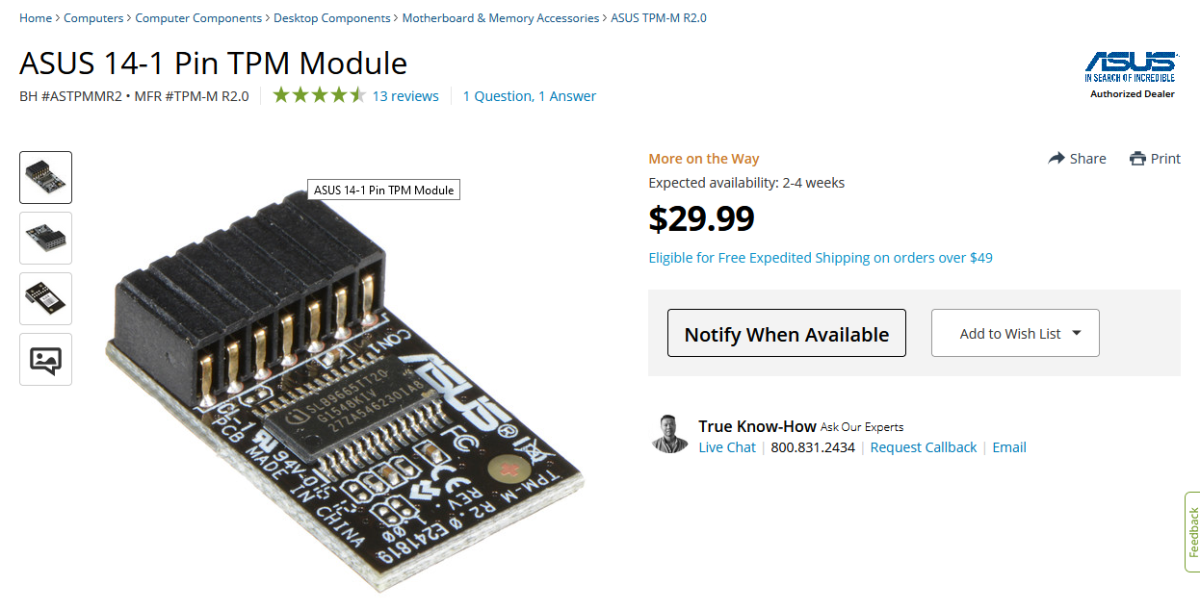
[ad_1]
Windows 11 requires a Trusted Platform Module 2.0 as part of its hardware requirements, but only a very select handful of people will ever need to buy a physical module for their motherboard. Chances are extremely high you don’t need one—the vast majority of users can use firmware TPM instead, and everyone else with unsupported hardware is better off running Windows 10 as it is. But if you’re determined to seek one anyway, having less competition is a good thing. Finding a TPM is still rough-going at the moment.
After the rush of purchases that happened this past summer—before Microsoft’s new operating system even launched—stock remains constrained. The few people seeking a physical TPM already have plenty competition as it is. The good news is that prices aren’t nearly as inflated as they once were, if you know where to look.
TPM buying checklist
Before you buy anything, make sure you’ve first verified all of the following information:
- Your motherboard has a TPM 2.0 header and support for the module in the BIOS/UEFI interface. (Stop here and do not buy a TPM if your mobo does not have both.)
- The pin arrangement of your motherboard’s TPM header. Unfortunately, the number of pins (either 14 or 20) and their arrangement is not standard.
- The pin-out of the TPM module you’re considering for purchase. It needs to be compatible with your motherboard for it to work.
Where to buy a TPM for Windows 11

PCWorld
As of late October, you’ll find TPM listings at major electronics retailers and auction sites. Pickings are still slim currently, with the most common modules from Asus, Gigabyte, MSI, and ASRock mostly out of stock at stores or being sold at two to three times higher prices in auctions. But if you look carefully, you can spot in-stock or reasonable listings on Newegg and eBay.
We recommend signing up for stock notifications for the TPM model you need, so you can grab it at a normal price (between $15 to $35). Waiting won’t hurt—if anything, Windows 11’s performance and features will (hopefully) get necessary improvements during that time.
Be sure to also check local computer stores for TPM stock, as they’re often a great source for scarce components. For example, Central Computers, a chain local to the San Francisco Bay Area (where the PCWorld office is based), has Asus and SuperMicro models available for in-store purchase.
As always when hunting for scarce items, stay patient and vigilant. With enough time and luck, you should be able to get what you need without having to overspend.
[ad_2]
Source link